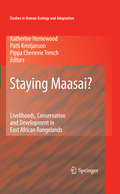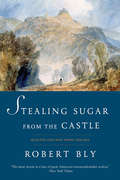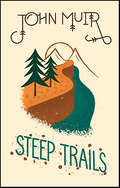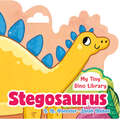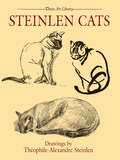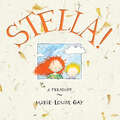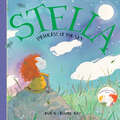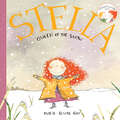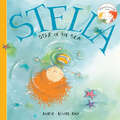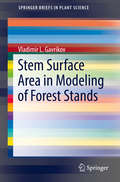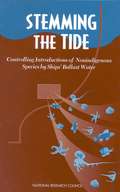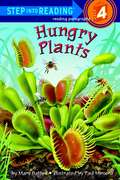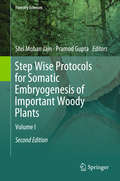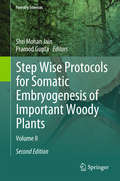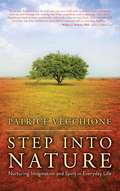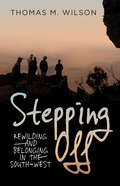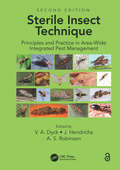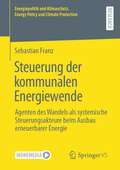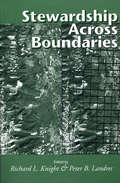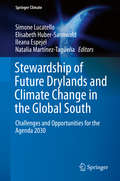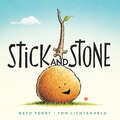- Table View
- List View
Staying Maasai?
by P. Trench Patti Kristjanson Katherine HomewoodThe area of eastern Africa, which includes Tanzania and Kenya, is known for its savannas, wildlife and tribal peoples. Alongside these iconic images lie concerns about environmental degradation, declining wildlife populations, and about worsening poverty of pastoral peoples. East Africa presents in microcosm the paradox so widely seen across sub Saharan Africa, where the world's poorest and most vulnerable populations live alongside some of the world's most outstanding biodiversity resources. Over the last decade or so, community conservation has emerged as a way out of poverty and environmental problems for these rural populations, focusing on the sustainable use of wildlife to generate income that could underpin equally sustainable development. Given the enduring interest in East African wildlife, and the very large tourist income it generates, these communities and ecosystems seem a natural case for green development based on community conservation. This volume is focused on the livelihoods of the Maasai in two different countries - Kenya and Tanzania. This cross-border comparative analysis looks at what people do, why they choose to do it, with what success and with what implications for wildlife. The comparative approach makes it possible to unpack the interaction of conservation and development, to identify the main drivers of livelihoods change and the main outcomes of wildlife conservation or other land use policies, while controlling for confounding factors in these semi-arid and perennially variable systems. This synthesis draws out lessons about the successes and failures of community conservation-based approach to development in Maasailand under different national political and economic contexts and different local social and historical particularities.
Stealing Sugar from the Castle: Selected and New Poems, 1950-2013
by Robert Bly"[Robert Bly] is . . . the most recent in a line of great American transcendentalist writers."--New York Times Selected from throughout Robert Bly's monumental body of work from 1950 through the present, Stealing Sugar from the Castle represents the culmination of an astonishing career in American letters. Bly has long been the voice of transcendentalism and meditative mysticism for his generation. Influenced by Emerson and Thoreau, inspired by spiritual traditions from Sufism to Gnosticism, his vision is "oracular" (Antioch Review). From the rich, earthy simplicity of Silence in the Snowy Fields (1962) to the wild yet intricately formal ghazals of My Sentence Was a Thousand Years of Joy (2005) and the striking richness and authority of Talking into the Ear of a Donkey (2011), Bly's poetry is spiritual yet worldly, celebrating the uncanny beauty of the everyday. "I am happy, / The moon rising above the turkey sheds. // The small world of the car / Plunges through the deep fields of the night," he writes in "Driving Toward the Lac Qui Parle River." Here is a poet moved by the mysteries of the world around him, speaking the language of images in a voice brilliant and bold.
Steep Trails
by John MuirConsidered one of the patron saints of twentieth-century environmental activity, John Muir's appeal to modern readers is that he not only explored the American West but also fought for its preservation. Steep Trails collects together his essays and letters written as he traveled through the West, capturing the personal, heartfelt connection he had with the lands he roamed. His work takes the reader through the mountains and valleys of California, over the Cascades and the Wasatch Ranges, through Puget Sound and the forests of Washington and Oregon, and to the breathtaking Grand Canyon of Arizona. Muir’s writing intimately connects the reader to the heart of nature; as the world increasingly tries to reconnect with the earth, Steep Trails offers the funny, charming, educational, and exalted wanderings of John Muir over nearly three decades of his life.
Stegosaurus (My Tiny Dino Library)
by J. D. ForesterYoung readers will love exploring this dinosaur-shaped board book filled with playful rhymes and facts all about the mighty Stegosaurus!Stomp, stomp, stomp! Roar, roar, roar! Learn all about Stegosaurus, a Jurassic dinosaur!
Steinlen Cats
by Théophile-Alexandre SteinlenThéophile-Alexandre Steinlen (1859-1923), one of the greatest illustrators of the late nineteenth and early twentieth centuries, was born in Lausanne, Switzerland, but moved permanently to Paris at the age of 23 and became a French citizen.In addition to posters, song sheets, etchings, murals, and book illustrations, Steinlen did drawings for over 30 magazines, some of which he founded. A politically liberal Montmarte bohemian, he faithfully portrayed all aspects of Parisian life, but gave special attention to the everyday joys and sorrows of working people.Perhaps no other sector of Steinlen's art is as strongly associated with his name today as his studies of cats. He never ceased to draw them in all their activities and moods. Cats figure prominently in some of his most famous works, such as his great poster "Pure Sterilized Milk from the Vingeanne."The cat drawing in the present volume are reproduced from two rare volumes: a 1933 collection of previously unpublished animal drawings (Chats et autres bêtes, published in an edition of only 545 copies), and a turn-of-the-century album of picture stories without words (Des chats).
Stella!: A Treasury (Stella and Sam)
by Marie-Louise GayMarie-Louise Gay published Stella, Star of the Sea more than ten years ago. It was an immediate hit, and since then she has written and illustrated four more books featuring the engaging, red-headed heroine, Stella, and her little brother, Sam — Stella, Queen of the Snow; Stella, Fairy of the Forest; Stella, Princess of the Sky and, most recently, When Stella Was Very, Very Small. With gentle humor, freshness, a sense of whimsy and exquisite watercolors, Marie-Louise Gay gives us stories about two young siblings discovering their world. Here at last are all five books bound into one delightful volume. The treasury contains new art for the cover and opening page as well as new decorative line art.When Stella Was Very, Very Small"When Stella was very, very small, she thought she was a turtle. She also thought that trees could talk and that words were like ants running off the pages of her books." This is the story of a lovely tiny Stella, whose world is full of small adventures and slivers of magic. And she delights in sharing it all with Sam when he comes along. Stella, Star of the SeaStella and Sam are spending the day at the sea. Stella has been to the sea before and knows all its secrets, but Sam has many questions…and Stella has an answer for them all. The only thing she isn’t sure of, and neither are we, is whether Sam will ever come into the water. Stella, Queen of the SnowWinter was never so magical as in this marvelous book about Stella and Sam discovering a familiar landscape transformed by a heavy snowfall. Stella delights in showing Sam the many pleasures of a beautiful winter’s day, from skating and sledding to making snow angels in a fluffy, white magical world.Stella, Fairy of the ForestLittle brother Sam wonders whether fairies are invisible. Stella assures him that she has seen hundreds of them and says that if she and Sam venture across the meadow and into the forest, they are likely to find some. But Sam surprises Stella and himself by having a few ideas of his own — ideas that ensure a wonderful end to a perfect day in the woods.Stella, Princess of the SkyStella and Sam explore the wonders of the natural world. A vast luminous sky, the sun, the stars and the rising moon form the backdrop for their nocturnal expedition. As they encounter raccoons, fireflies, tree frogs and bats, Sam wonders if the moon can swim, if the sun wears pajamas or if he can catch shooting stars with his butterfly net. Stella, as always, has an answer for every question.
Stella, Fairy of the Forest (Stella and Sam #3)
by Marie-Louise GayStella's little brother Sam wonders whether fairies are invisible. Stella assures him that she has seen hundreds of them and that if she and Sam venture across the meadow and into the forest, they are likely to find some. So begins another adventure in the Stella and Sam series about the irrepressible red-head, and her slightly apprehensive little brother.
Stella, Princess of the Sky (Stella and Sam #2)
by Marie-Louise GayAnother adventure begins in this book in the Stella and Sam series as the pair explores the wonders of the natural world. A vast luminous sky, the sun, the stars and the rising moon form the backdrop for their nocturnal expedition. As they encounter raccoons, fireflies, tree frogs and bats, Sam wonders if the moon can swim, if the sun wears pajamas or if he can catch shooting stars with his butterfly net. Stella, as always, has an answer for every question.Marie-Louise Gay's whimsical prose and enchanting illustrations capture the joys of young children making their first discoveries of the world around them.
Stella, Queen of the Snow (Stella and Sam)
by Marie-Louise GayWinner of the Elizabeth Mrazik-Cleaver Award Stella and her little brother, Sam, are spending the day playing in the snow. The forest, snowballs, snow angels and the mysterious white stuff itself provide fuel for Sam's questions and Stella's answers as they discover the world of winter together. Exquisite, evocative watercolors bring a snowy day alive and make this a wonderful winter story. Gently humorous, the book also captures the relationship between an older sister and her little brother -- a fun yet sometimes trying responsibility. Stella and Sam explore the wonders of snow with the same magic that they bring to all their adventures.
Stella, Star of the Sea (Stella and Sam #5)
by Marie-Louise GayStella and her little brother are spending the day at the sea. Stella has been to the sea before and knows all its secrets, but Sam has many questions: "Does a catfish purr? Does a seahorse gallop?" Stella has an answer for them all. The only thing she isn't sure of, and neither are we, is whether Sam will ever come into the water.Exquisite, evocative watercolors bring a diaphanous day at the beach alive in this perfect summer story. Gently humorous, Stella, Star of the Sea also captures the relationship between an older sister and her baby brother — a responsibility that can be both lots of fun and very trying.
Stem Surface Area in Modeling of Forest Stands
by Vladimir L. GavrikovThis book reveals the benefits of describing and modeling trees as the combined surface areas of their stems, and provides a concise overview of the fundamental grounds for adopting such an approach. Anatomically speaking, trees are largely thin sheaths of living cells and it is this understanding that has sparked growing interest in the study of stem surface areas in trees and stands. An overview of publications on analytical methods for the dynamics and structure of forest stands based on stem surface area is also provided. The approach described here gives readers a chance to rethink some models that were popular for decades, while also offering a glance into future research. The application of a simple geometrical model of a forest stand has made it possible to reexamine a highly promising model, the self-thinning rule, which has been a subject of a protracted discussion for the past few decades. Further, the analysis presented here can serve as the basis for predicting forest stand increments, a topic that calls for further development.
Stemming the Tide: Controlling Introductions of Nonindigenous Species by Ships' Ballast Water
by Committee on Ships' Ballast OperationsThe European zebra mussel in the Great Lakes, a toxic Japanese dinoflagellate transferred to Australia--such biologically and economically harmful stowaways have made it imperative to achieve better management of ballast water in ocean-going vessels.Stemming the Tide examines the introduction of nonindigenous species through ballast water discharge. Ballast is any solid or liquid that is taken aboard ship to achieve more controlled and safer operation. This expert volume Assesses current national and international approaches to the problem and makes recommendations for U.S. government agencies, the U.S. maritime industry, and the member states of the International Maritime Organization. Appraises technologies for controlling the transfer of organisms--biocides, filtration, heat treatment, and others --with a view toward developing the most promising methods for shipboard demonstration. Evaluates methods for monitoring the effectiveness of ballast water management in removing unwanted organisms. The book addresses the constraints inherent in ballast water management, notably shipboard ballast treatment and monitoring. Also, the committee outlines efforts to set an acceptable level of risk for species introduction using the techniques of risk analysis. Stemming the Tide will be important to all stakeholders in the issue of unwanted species introduction through ballast discharge: policymakers, port authorities, shippers, ship operators, suppliers to the maritime industry, marine biologists, marine engineers, and environmentalists.
Step Into Reading® 4: Hungry Plants
by Mary Batten Paul MirochaDescribes the structure and behavior of various carnivorous plants, including the Venus flytrap, sundew, pitcher plant, and bladderwort. a Level 4 Step Into Reading title.
Step Wise Protocols for Somatic Embryogenesis of Important Woody Plants: Volume I (Forestry Sciences #84)
by Shri Mohan Jain Pramod GuptaWorld population is increasing at an alarming rate and this has resulted in increasing tremendously the demand for tree products such as wood for construction materials, fuel and paper, fruits, oils and medicines etc. This has put immense pressure on the world’s supplies of trees and raw material to industry and will continue to do so as long as human population continues to grow. Also, the quality of human diet, especially nutritional components, is adversely affected due to limited genetic improvement of most of fruit trees. Thus there is an immediate need to increase productivity of trees. Improvement has been made through conventional breeding methods, however, conventional breeding is very slow due to long life cycle of trees. A basic strategy in tree improvement is to capture genetic gain through clonal propagation. Clonal propagation via organogenesis is being used for the production of selected elite individual trees. However, the methods are labour intensive, costly, and produce low volumes. Genetic gain can now be captured through somatic embryogenesis. Formation of embryos from somatic cells by a process resembling zygotic embryogenesis is one of the most important features of plants. In 1958, Reinert in Germany and Steward in USA independently reported somatic embryogenesis in carrot cultures. Since then, tremendous progress in somatic embryogenesis of woody and non-woody plants has taken place. It offers a potentially large-scale propagation system for superior clones.
Step Wise Protocols for Somatic Embryogenesis of Important Woody Plants: Volume I (Forestry Sciences Ser. #84)
by Shri Mohan Jain Pramod GuptaWorld population is increasing at an alarming rate and this has resulted in increasing tremendously the demand for tree products such as wood for construction materials, fuel and paper, fruits, oils and medicines etc. This has put immense pressure on the world’s supplies of trees and raw material to industry and will continue to do so as long as human population continues to grow. Also, the quality of human diet, especially nutritional components, is adversely affected due to limited genetic improvement of most of fruit trees. Thus there is an immediate need to increase productivity of trees. Improvement has been made through conventional breeding methods, however, conventional breeding is very slow due to long life cycle of trees. A basic strategy in tree improvement is to capture genetic gain through clonal propagation. Clonal propagation via organogenesis is being used for the production of selected elite individual trees. However, the methods are labour intensive, costly, and produce low volumes. Genetic gain can now be captured through somatic embryogenesis. Formation of embryos from somatic cells by a process resembling zygotic embryogenesis is one of the most important features of plants. In 1958, Reinert in Germany and Steward in USA independently reported somatic embryogenesis in carrot cultures. Since then, tremendous progress in somatic embryogenesis of woody and non-woody plants has taken place. It offers a potentially large-scale propagation system for superior clones.
Step into Nature: Nurturing Imagination and Spirit in Everyday Life
by Patrice VecchioneStep outside your door and reconnect with nature. From the author of Writing and the Spiritual Life comes a guide that will replenish your connection to the earth and inspire you to develop and strengthen your imagination.The natural world has inspired artists, seekers, and thinkers for millennia, but in recent times, as the pace of life has sped up, its demands have moved us indoors. Yet nature's capacity to lead us to important truths, to invigorate and restore our imagination and equilibrium, is infinite. Step into Nature makes nature personal again by stimulating awareness and increasing our understanding of the environment. But being in nature doesn't mean flying off to remote, faraway places. Nature is as close as opening your front door--and opening your heart to the sky above, the miniature gardens that push their way up between the sidewalk cracks in our cities, and the small stream just down the road. Patrice Vecchione demonstrates how nature can support and enhance your creative output, invigorate your curiosity, and restore your sense of connection to and love of the earth. Included throughout the book is "The Cabinet of Curiosities," exercises and suggestions for practical and unexpected ways to stimulate your imagination, deepen your relationship with nature, and experience the harmony between creativity and the natural world.
Stepping Off: Rewilding and Belonging in the South-West
by Thomas WilsonStepping Off is a book for locals and travellers alike. It is the story of the south-western corner of Western Australia: an environmental history, a social history, an invitation to reconnect with the land – and in doing so, to reconnect with ourselves.
Sterile Insect Technique: Principles And Practice In Area-Wide Integrated Pest Management
by V. A. DyckThe sterile insect technique (SIT) is an environment-friendly method of pest control that integrates well into area-wide integrated pest management (AW-IPM) programmes. This book takes a generic, thematic, comprehensive, and global approach in describing the principles and practice of the SIT. The strengths and weaknesses, and successes and failures, of the SIT are evaluated openly and fairly from a scientific perspective. The SIT is applicable to some major pests of plant-, animal-, and human-health importance, and criteria are provided to guide in the selection of pests appropriate for the SIT. In the second edition, all aspects of the SIT have been updated and the content considerably expanded. A great variety of subjects is covered, from the history of the SIT to improved prospects for its future application. The major chapters discuss the principles and technical components of applying sterile insects. The four main strategic options in using the SIT — suppression, containment, prevention, and eradication — with examples of each option are described in detail. Other chapters deal with supportive technologies, economic, environmental, and management considerations, and the socio-economic impact of AW-IPM programmes that integrate the SIT. In addition, this second edition includes six new chapters covering the latest developments in the technology: managing pathogens in insect mass-rearing, using symbionts and modern molecular technologies in support of the SIT, applying post-factory nutritional, hormonal, and semiochemical treatments, applying the SIT to eradicate outbreaks of invasive pests, and using the SIT against mosquito vectors of disease. This book will be useful reading for students in animal-, human-, and plant-health courses. The in-depth reviews of all aspects of the SIT and its integration into AW-IPM programmes, complete with extensive lists of scientific references, will be of great value to researchers, teachers, animal-, human-, and plant-health practitioners, and policy makers.
Steuerung der kommunalen Energiewende: Agenten des Wandels als systemische Steuerungsakteure beim Ausbau erneuerbarer Energie (Energiepolitik und Klimaschutz. Energy Policy and Climate Protection)
by Sebastian FranzDiese Studie interessiert sich für einzelne Personen oder kleine Gruppen und deren Möglichkeiten und Grenzen der Steuerung der lokalen Energiewende. Wie funktioniert dieser grundlegende Prozess der Steuerung, bei dem einzelne Personen bestimmte Kompetenzen, Leistungen und Ressourcen für ihre Intervention in das Energiesystem bündeln? Auf diese Frage bieten die Governance-Perspektive und auch die Transformationsforschung unterschiedliche Erklärungsansätze. Zentrales Anliegen dieser Studie ist es, zu zeigen, unter welchen Bedingungen es zu gelingender Steuerung der Energiewende und zu intendierten Veränderungen im Energiesystem kommen kann. Hierfür greift die Studie das Konzept der Agenten des Wandels auf und bringt es mit der soziologischen Systemtheorie in Verbindung. Aus systemischer Perspektive ergibt sich die größte Problematik daraus, dass sich komplexe Systeme wie die Energiewirtschaft nicht einfach steuern, sondern nur unter ganz bestimmten Bedingungen beeinflussen lassen. Mit der Analyseperspektive eines systemischen Agenten des Wandels-Konzepts und dessen Operationalisierung anhand zweier empirischer Fallstudien in Baden-Württemberg werden theoretische Grundlagen erarbeitet, mit denen erklärt werden kann, wie gesellschaftliche Transformationsprozesse gestaltet und beschleunigt werden können.
Steward's Fork: A Sustainable Future for the Klamath Mountains
by James K. AgeeThe book explores northwest California's magnificent Klamath Mountains--a region that boasts a remarkable biodiversity, a terrain so rugged that significant landscape features are still being discovered there, and a wealth of natural resources that have been used, and more recently abused, by humans for millennia.
Stewardship Across Boundaries
by Richard L. Knight Peter LandresEvery piece of land, no matter how remote or untrammeled, has a boundary. While sometimes boundary lines follow topographic or biological features, more often they follow the straight lines of political dictate and compromise. Administrative boundaries nearly always fragment a landscape, resulting in loss of species that must disperse or migrate across borders, increased likelihood of threats such as alien species or pollutants, and disruption of natural processes such as fire. Despite the importance and ubiquity of boundary issues, remarkably little has been written on the subject.Stewardship Across Boundaries fills that gap in the literature, addressing the complex biological and socioeconomic impacts of both public and private land boundaries in the United States. With contributions from natural resource managers, historians, environmentalists, political scientists, and legal scholars, the book:develops a framework for understanding administrative boundaries and their effects on the land and on human behavior examines issues related to different types of boundaries -- wilderness, commodity, recreation, private-public presents a series of case studies illustrating the efforts of those who have cooperated to promote stewardship across boundaries synthesizes the broad complexity of boundary-related issues and offers an integrated strategy for achieving regional stewardshi.Stewardship Across Boundaries should spur open discussion among students, scientists, managers, and activists on this important topic. It demonstrates how legal, social, and ecological conditions interact in causing boundary impacts and why those factors must be integrated to improve land management. It also discusses research needs and will help facilitate critical thinking within the scientific community that could result in new strategies for managing boundaries and their impacts.
Stewardship of Future Drylands and Climate Change in the Global South: Challenges and Opportunities for the Agenda 2030 (Springer Climate)
by Simone Lucatello Elisabeth Huber-Sannwald Ileana Espejel Natalia Martínez-TagüeñaThis volume integrates a conceptual framework with participatory methodologies to understand the complexities of dryland socio-ecological systems, and to address challenges and opportunities for stewardship of future drylands and climate change in the global south. Through several case studies, the book offers a transdisciplinary and participatory approach to understand the complexity of socio-ecological systems, to co-produce accurate resource management plans for sustained stewardship, and to drive social learning and polycentric governance. This systemic framework permits the study of human-nature interrelationships through time and in particular contexts, with a focus on achieving progress in accordance with the 2030 United Nations Agenda for Sustainable Development. The book is divided into four main sections: 1) drylands and socio-ecological systems, 2) transdisciplinarity in drylands, 3) interculturality in drylands, and 4) the governance of drylands. Expert contributors address topics such as pastoralism and the characteristics of successful agricultural lands, the sustainable development goals and drylands, dryland modernization, and arid land governance with a focus on Mexico. The volume will be of interest to dryland researchers, sustainable development practitioners and policymakers.
Stick and Stone (Stick and Stone)
by Beth FerryNew York Times best-selling duo Stick and Stone are STICKing together in this hilarious and heartwarming picture book that proves once and for all why best friends ROCK! From beloved picture book creators Beth Ferry and Tom Lichtenheld, perfect for fans of Kelly DiPucchio and Jory John. When Stick rescues Stone from a prickly situation with a Pinecone, a friendship is born. But when Stick gets stuck, can Stone return the favor? With simple rhyming text, subtle messages of kindness and compassion, and Tom Lichtenheld&’s signature charm, this delightful story about making and helping friends will enchant readers young and old because it&’s never too early—or too late—to stick up for your friends.Don't miss further adventures with Stick and Stone in Stick and Stone: Best Friends Forever.
Stickler Loves the World
by Lane SmithFrom award-winning author/illustrator Lane Smith comes Stickler, a woodland creature who reminds us to appreciate the everyday wonders we often ignore. In a picture book that’s both silly and sweet, readers will find Stickler’s enthusiasm irresistible and see the world anew. <P><P> And just think of the wonders we must pass every day without even noticing! <P><P> Stickler, an original character covered in sticks and with multiple ever-changing eyes, loves its little world. With best friend Crow, it shares the wonders of all the amazing things the world has to offer. Stickler is astonished by the ordinary, such as the sun and the stars, as well as fascinated by those things in nature that are often overlooked, such as swirling seed pods falling from the sky. The two pals wander about the world, stopping to appreciate the many marvels along the way, especially its beloved sticks, each one unique. <P><P> Stickler Loves the World encourages awareness and mindfulness with a joyous and lighthearted touch. The award-winning illustrator of bestsellers including Penguin Problems and Giraffe Problems brings imagination and humor to a story that features a delightful and original character.
Stikky Trees
by Laurence HoltStikky Trees uses a unique, pattern-based learning method to bring a timeless skill to anyone with an hour to spare. We spent months with readers testing and refining it to be sure it will work for you. Includes a comprehensive Next Steps section with guides to the top 10 trees in your state, tree field manuals, how trees work (in six bullet points), their five biggest enemies, forests, parks, arboreta, and more.
